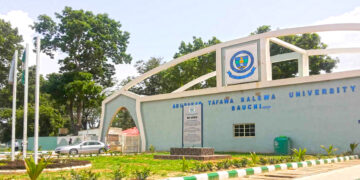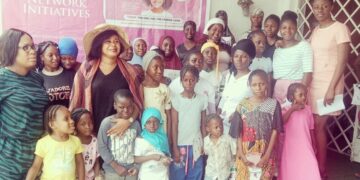Not less than 2.3 million Nigerian children have never received a single dose of routine vaccines, putting them at risk of preventable diseases and death, stakeholders have warned.
Based on figures from the 2021 Multiple Indicator Cluster Survey/National Immunization Coverage Survey (MICS/NICS), there are approximately 36 million children under the age of five in Nigeria. While Nigeria has made progress in some child health-related indicators, such as reducing the under-five mortality rate from 182 deaths per 1,000 live births in 2000 to 111 deaths per 1,000 live births in 2021, additional efforts will be needed for the country to meet most of the child-related Sustainable Development Goal (SDG) indicators by 2030.
In addition to being an important SDG indicator, increasing immunization coverage would contribute to reducing child mortality in Nigeria. For example, vaccines could help prevent diarrhea-related illnesses and measles and reduce respiratory infections, which combined caused 48 per cent of deaths among children under five. Sadly, the report showed that only 36 per cent of Nigerian children aged 12–23 months had received all the recommended vaccinations while 18 per cent of children in the same age range had not received any vaccination.
Chief of the United Nations Children’s Fund (UNICEF) Field Office, South-West Nigeria, Celine Lafoucriere, who disclosed this at a media dialogue on routine immunization, on Wednesday in Lagos, said vaccine remains essential to children’s health, as it is a fundamental human right.
Lafoucriere decried that about 2.3 million Nigerian children have not received a single dose of vaccine, while calling on stakeholders to bridge the gap.
Social and behaviour change specialist, UNICEF, Aderonke Akinola-Akinwole, listed the challenges fuelling zero-dose children in Nigeria, as inadequate health facilities; long travel time to access available facilities; security compromised areas;Japa syndrome which has led to increasing workload for health workers; Low funding commitment for Routine Immunization services; inadequate information about RI; low community participation and an overwhelming rise in misinformation and vaccine hesitancy.
In addressing vaccine inequity and ensuring no child is left behind, Akinola-Akinwole averred that UNICEF provides the required vaccines for all children irrespective of class, race, or demography focusing more on the most marginalized children. “UNICEF works with the government of Nigeria and other international partners in procuring high-quality and potent vaccines and making them available in the country. It invests in ensuring that the cold chain system for protecting the potency of the vaccine is available and also caters for the movement of these vaccines to where they are needed, thereby ensuring it reaches the last child at the last mile,” she stated.
Recall that the National Primary Health Care Development Agency (NPHCDA), in collaboration with the World Health Organization (WHO), UNICEF, Gavi and the state government, has deployed the Zero-Dose Reduction Operational Planning (ZDROP) initiative, aimed to identify, reach, and vaccinate children who have never been immunized. The effort will focus particularly on hard-to-reach areas, conflict zones, and underserved rural communities.
Keying into this initiative, Lagos State will be implementing a state-wide supplemental immunisation campaign on October 19, 2024, the Lagos State Primary Health Care Board (PHCB) immunisation program coordinator, Dr. Adetola Akinpelu, disclosed, adding that the state will be integrating Measles, Yellow Fever (YF), HPV and also Routine Immunization Zero Dose.
“The idea of this initiative is to address immunity gaps in the population not reached by routine immunization; to achieve 95 percent vaccination coverage for Measles (PCCS) & nOPV2 (LQAS), and 80 percent coverage for YF (PCCS). We will be providing second opportunity to receive measles and YF vaccination in eligible children and first opportunity for YF vaccines in older populations. Our target is to achieve more than 85 percent coverage of zero dose children in the Zero dose LGAs.
“Lagos state would be implementing in 20 LGAs, 376 wards with 7109 teams operating as fixed posts (355 teams), temporary fixed posts and house to house teams (6754) with a total of nine persons per team. The campaign will be implemented for 14 days,” he added.





